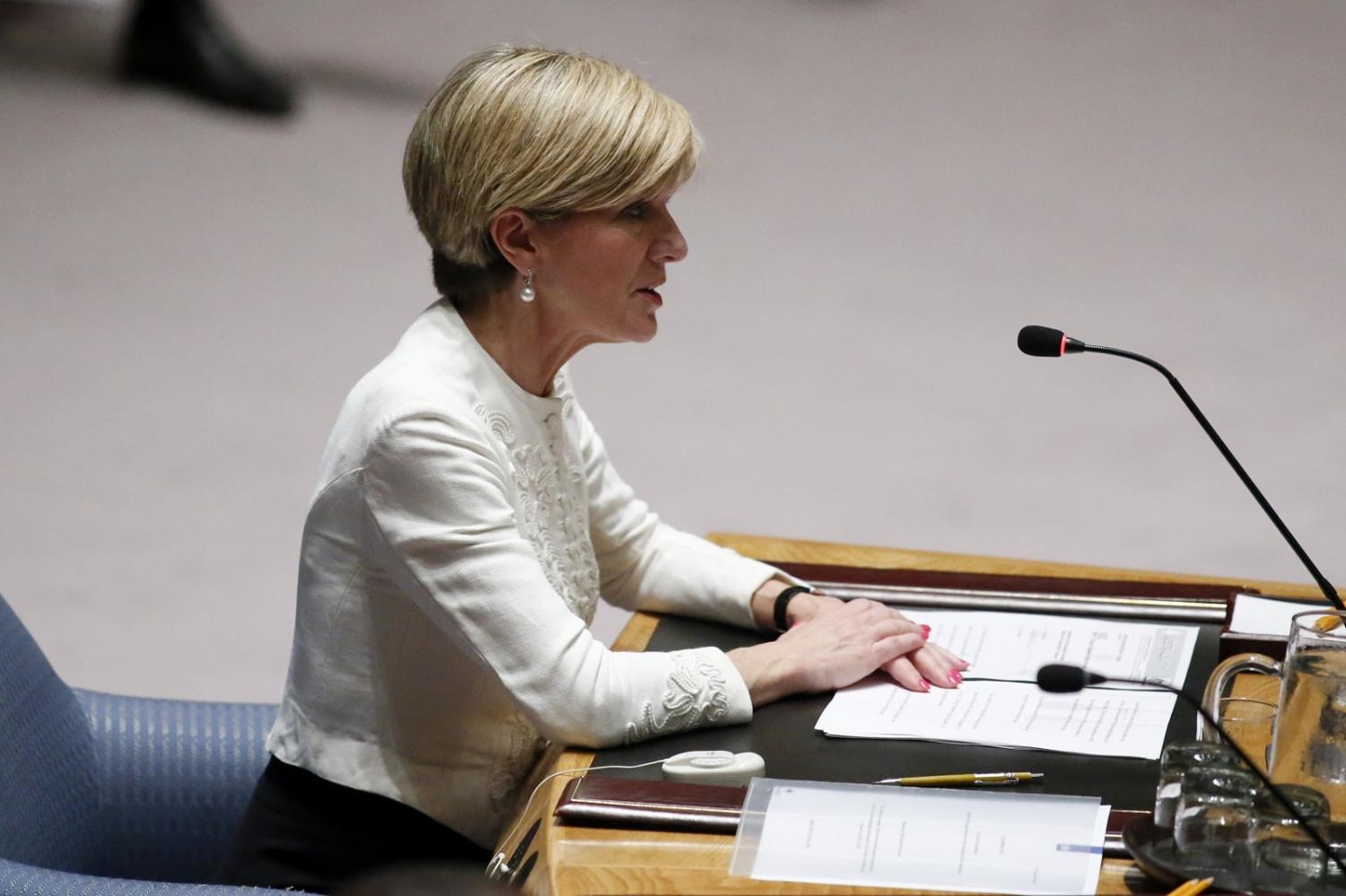The appointment by UN Secretary-General António Guterres of former Australian foreign minister Julie Bishop as his new special envoy to Myanmar raises a number of questions: is she the right person for the job? Is there a role for a UN envoy in Myanmar today? Is there even a place for international mediation in the country’s revolutionary war?
Many observers will be sceptical or even outright contemptuous about the appointment of a new UN envoy because envoys have been a lightning rod for the world’s frustrations over the intractability of Myanmar’s conflicts since the position was first established in response to the 1988 military coup.
Since the eruption in 2021 of a mass insurrection to overthrow the current coup regime and rid the country, once and for all, of military rule, any talk of mediation has become largely taboo. Would-be international mediators have not only been widely ridiculed for not achieving the impossible but also criticised for even trying.
Yet focusing too much on failures risks blinding us to opportunities.
Mediation: an undervalued tool
Mediation by its nature often looks ineffective – right up to the point where it succeeds. And the potential rewards are undeniable. Indeed, any scenario for ending the war in Myanmar without destroying the country will ultimately require some form of negotiation, even if only to agree on the terms of the generals’ surrender and the disarmament, demobilisation and reintegration of their soldiers into civilian life.
The current situation may not yet be ripe for mediation. But mediation is not something you can turn on and off like a tap. It can take years to build the necessary knowledge and relationships. And if the potential mediators are not ready when the window opens, they may well miss it.
In any case, the role of the UN envoy is much broader than traditional mediation.
A UN envoy: better than the alternatives
While nationalist governments and internationalist activists alike are often quick to dismiss the value of the UN, people around the world continue to look to it to represent if not an illusory “international community”, then at least some basic idea of common international standards. The alternative is to rely on bilateral envoys who are more likely to prioritise the national interests of their home country.
A UN envoy is also uniquely placed to help bring together the often conflicting approaches of different member states, as well as to give greater direction to the different parts of the UN system.
Julie Bishop: an inspired choice
Past experience shows that the results of UN envoys in Myanmar have more to do with the candidate’s personality and approach than their resume, making it hard to pre-judge Julie Bishop's prospects. However, she does at least tick some useful boxes.
As a respected former foreign minister, she has both the diplomatic status and personal networks needed to be taken seriously in the various capitals and other “rooms” that matters in shaping an international response to the crisis in Myanmar.
As an Australian, she comes from a country that is credibly committed to values of peace, democracy, and human rights, yet is sufficiently humble and pragmatic to be able to bridge the divides in a world where such values are increasingly questioned and national security interests often come first.
Making the most of the mandate
A key consideration for Bishop will be how to approach her mandate. Fortunately, it is both broad and vague enough to leave ample room for interpretation.
There should be no illusions that Myanmar’s generals can somehow be coaxed into surrendering. Yet the military regime is undergoing unprecedented stress and upheaval, and communication channels need to be kept open to help ensure that the full breadth of views are properly understood and potentially significant shifts in thinking are not missed.
In the meantime, there are ample opportunities for the new envoy to encourage progress in two vital areas: first, she should support further efforts by the diverse array of anti-junta groups to develop a common vision for the country. While these groups share a common enemy, there are serious tensions among them over the distribution of authority, resources, and territory – and those are only going to intensify once negotiations begin in earnest to agree on more fundamental, constitutional issues.
Second, she should work with all international actors, including Myanmar’s neighbours, to mobilise a much stronger and more coordinated response to the deteriorating humanitarian situation both inside the country and along its borders.
To succeed, the new envoy will need to work patiently and quietly. The current situation calls for a facilitator rather than a mediator. The job is likely to be mainly in the background, trying to progress “little” things that can be progressed but otherwise preparing for a time when more might become possible.
She will need the full backing of the UN Secretary-General, as well as key member states, who must empower the envoy rather than use her as a fig leaf for their own inaction. As for the rest of us – the pundits, journalists, and activists – we should keep an open mind and give Julie Bishop the space and time she needs to do her job.

